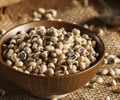Consumption of flavonoid-rich fruits and vegetables helps maintain cognitive function in adults. Opting for a colorful diet that contains foods with flavonoids promotes long-term brain health.
- Diet rich in flavonoids reduces the risk of subjective cognitive decline by 20%
- One in nine adults suffers from subjective cognitive decline across the world
- Flavonoids like flavones and anthocyanins boost mental health in adults
Read More..
Subjective Cognitive Decline – A Global Health Issue
Subjective Cognitive Decline (SCD) is the self-reported experience of worsening or more frequent confusion or memory loss. The cognitive decline associated with this condition ranges from mild cognitive impairment to dementia.According to the CDC, one in nine adults in the world has subjective cognitive decline (SCD). This condition can have implications for living with and managing a chronic disease or performing everyday activities like cooking or cleaning.
What Could Flavonoids do with SCD?
For the current study, the research team followed 49,493 women from the Nurses' Health Study (NHS) conducted during 1984-2006, and 27,842 men from the Health Professionals Follow-up Study (HPFS) conducted during 1986-2002.The participants responded to several questionnaires about how often they ate various foods over 20 years of follow-up. The participants also evaluated their own cognitive abilities based on how good they are at remembering recent events and a list of items.
On average, the highest 20% of consumers of flavonoids had about 600 milligrams in their diet, while the lowest 20% of flavonoid consumers had about 150 milligrams each day. After adjusting for age and total caloric intake the team found that the former had 20% less risk of self-reported cognitive decline than the latter.
Does the Type of Flavonoid Matter?
"While it is possible other phytochemicals are at work here, a colorful diet rich in flavonoidsand specifically flavones and anthocyaninsseems to be a good bet for promoting long-term brain health," said Dr.Willet.The study reports that flavones which are found in some spices and yellow or orange fruits and vegetables were associated with the reduction of the risk of cognitive decline by 38% whereas anthocyanins, found in berries reduced the risk of cognitive decline by 24%
Here's How You Can Fill Your Plate With Flavonoids
- Aim for filling your plate with colorful bell peppers daily
- Make an herbal salad rich in celery, parsley, and mint
- Take your flavonoid-rich tea on tea-times
- Try adding berries to your oatmeal
- Enjoy munching dark chocolate
References :
- Yeh TS, Yuan C, Ascherio A, Rosner B, Willett W, Blacker D. Long-term Dietary Flavonoid Intake and Subjective Cognitive Decline in US Men and Women. Neurology. 2021 Jul 28:10.1212/WNL.0000000000012454. doi: 10.1212/WNL.0000000000012454. Epub ahead of print. PMID: 34321362.
- Subjective Cognitive Decline — A Public Health Issue - (https://www.cdc.gov/aging/data/subjective-cognitive-decline-brief.html)
Source-Medindia














